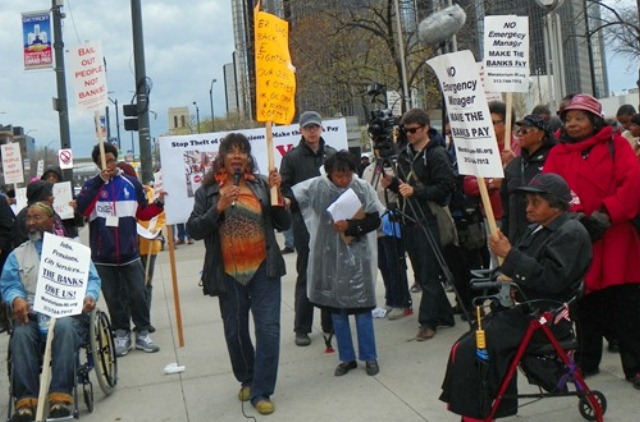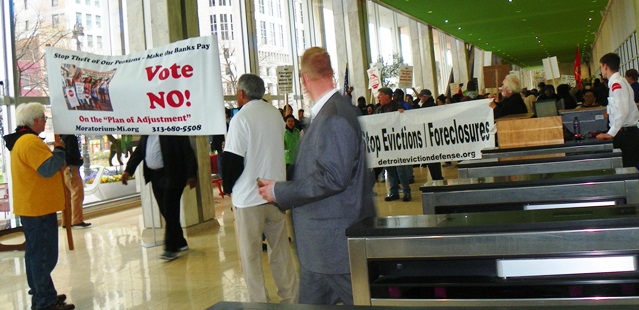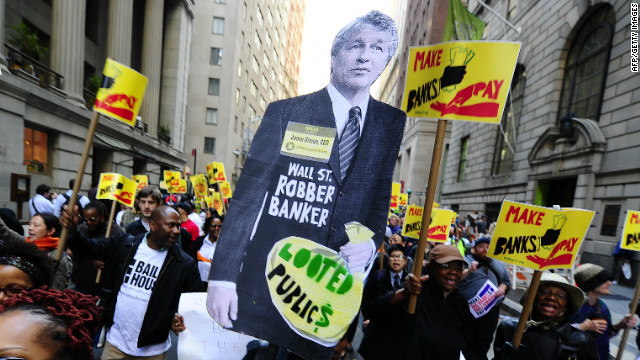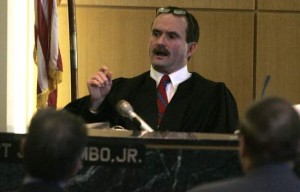Judge refuses to honor letter from bank saying homeowner owes nothing
Hearing in Judge Robert Colombo’s court at CAYMC Fri. Aug. 22 9 a.m.
By Ron Seigel
August 19, 2014
One of the major reasons for Detroit’s economic crisis, which has led to domination by a state appointed emergency manager and the prospect of bankruptcy, is the mass of foreclosures by banks.
So far most critics of the banks have been content to accuse them of making predatory loans. However, one case may lead us to question how many of the debts they are calling in are fraudulent.
The giant banking firm, J. P. Morgan Chase, has issued foreclosure proceedings on the home of Gwendolyn Mingo, the former head of the Brush Park Citizens District Council and also the Coordinating Council of all Detroit district councils.
Mingo, however, has shown this reporter a past letter from the exact same bank saying she does not owe them a cent.
When asked about this, the bank refused to comment.
Unless the bank is able to give a satisfactory answer, we may well wonder if JP Morgan Chase may have a huge case of financial fraud and violations of the law.
If so, one must wonder if Mrs. Mingo was the only victim or whether there were other false foreclosure suits. If there were others, J. P. Morgan Chase may face today a financial scandal comparable to the ones that faced Charles Ponzi and Bernard Madoff.,
Right now though the bank does not have to explain a single thing, thanks to Wayne County Circuit Judge Patricia Fresard.
In her foreclosure case, Mrs. Mingo was not allowed to submit the bank’s letter stating she did not owe them any money because the letter was on paper. Recent court rules declare judges in Wayne County foreclosure cases will not look at any documents no matter how relevant unless they are e-filed. Higher court officials admit that often grassroots people like Mrs. Mingo may not be able to afford to e-file or understand how to use such machines. These oficials claim they have solved this problem by allowing those in such situations to use court clerks to e-file under certain conditions.
Mingo says in her case the court clerks refused to e-file her document unless they got an order from the chief judge. When she got this court order somebody in the clerk’s office rejected it. As a result the e-filed document was never seen in court. Judge Fresard refused to consider Mingo’s paper document, even though she was given the copy and awarded Mingo’s home to the bank.
If there was wrongdoing by the bank, Judge Fresard’s rulings may be intentionally or unwittingly aiding a cover up.
It is interesting that the original rules forbidding paper documents were not officially applied in all counties in all cases. One of the areas where it was first applied, in what the court officials called an experimental basis, was inWayne County civil cases, which just happened to be the one place most convenient for banks issuing foreclosures and taking people’s homes. Was this a complete coincidence?
Mrs. Mingo has conducted a long appeal, which Friday will be taken up by Chief Judge Robert Colombo. One hopes this will be a real moment of truth, where the chief judge will rule getting the facts is more important than court technicalities on how they are presented.
More than one woman’s fate may be decided that day. If it it is a common practice to issue fraudulent debts and to deny people the chance to present proof of this in court, how many people, who do not have Mingo’s knowledge and experience as a community leader, can wage an effective resistance?
In the chief judge’s courtroom, our own homes, our cities, our very right to due process may be on trial. If you can, come to Judge Colombo’s court, 7th floor of the the Coleman A. Young Building or the City County Building, 9 a.m. Friday August 22 and hear what is going on. The home you save may be your own. The rights you save may be your own.









